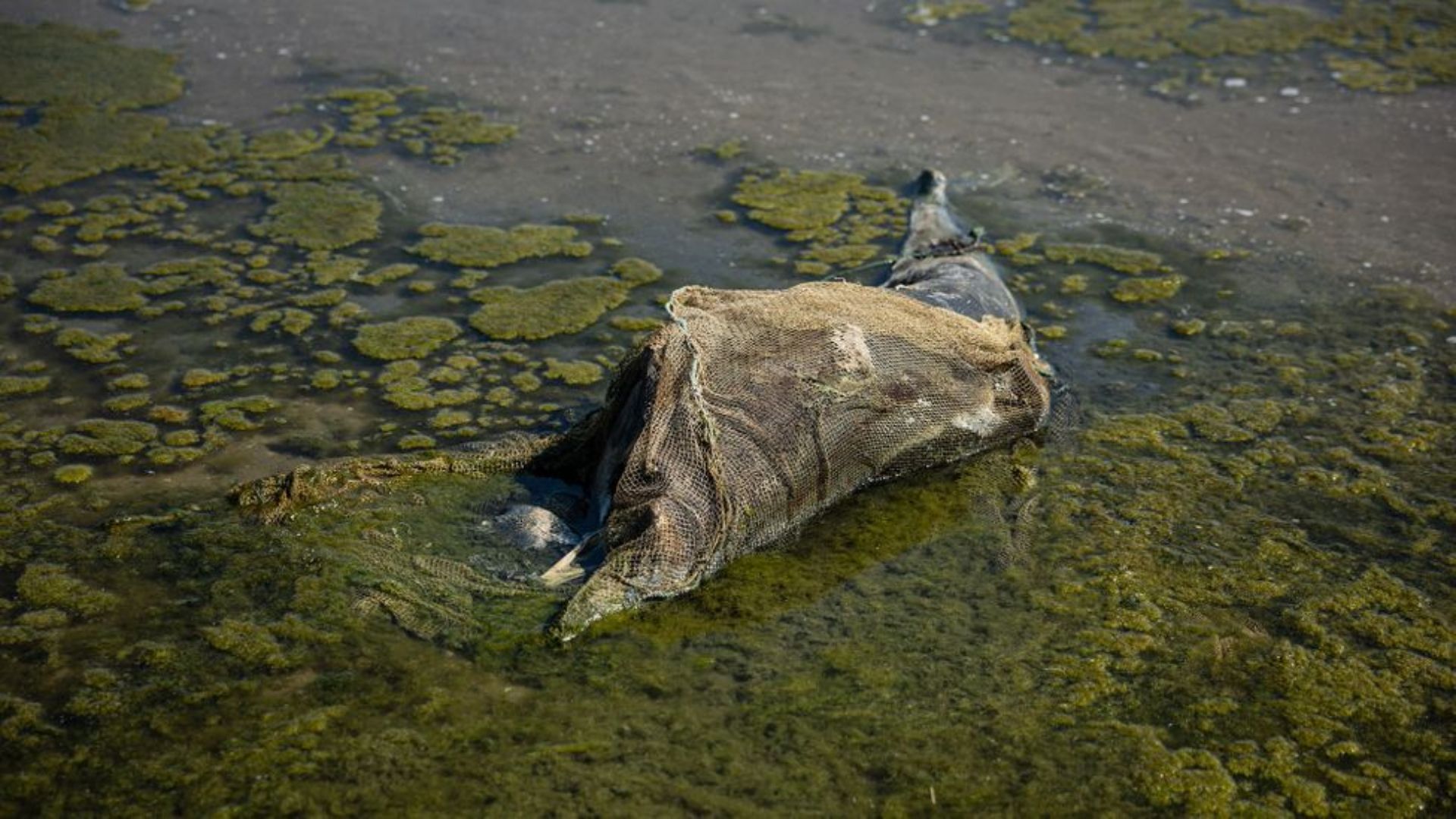Dolphins and porpoises are washing up dead on the shores of the Black Sea in unusually high numbers – scientists investigating the strandings are now pointing the finger at increased Russian naval activity due to the war in Ukraine.
In the months after Russia's full-scale invasion of Ukraine in February, Ivan Rusev noticed dolphins and porpoises washing up dead on the beach in unusually high numbers.
Rusev is the head of research at Tuzly National Nature Park, in south-west Ukraine, not far from the border with Moldova. In a normal year, he says, he finds perhaps three or four dead dolphins along the 44km (27 miles) of shoreline in the park. Once the war began, most of the shoreline was closed by the military.
Between 24 February 2022 and the end of August, he and his colleagues discovered 35 dead cetaceans along the 5km (3 miles) of shoreline still accessible. His team spoke to their counterparts in other Black Sea countries, except Russia and Georgia. Some of Ukraine's national parks, including one near the devastated city of Mariupol, are now in Russian occupied territory.
When they put all the numbers together, 2,500 dead dolphins had been reported to have washed up on shore by May 2022. But because most dead dolphins simply sink to the bottom of the sea and are never counted, Rusev believes the actual number is much higher.

The main culprit, Rusev argues, is acoustic trauma from the increased use of sonar by mainly Russian submarines.
"When dolphins obtain this pressure from sonar, it destroys the acoustic system fully. He [the dolphin] has no possibility to navigate himself, so he has to struggle and probably to crash... [We] just saw dolphins without any marks. When we saw dolphins before [the] war, we saw [marks] from the net on the body or cutting fins," he says.
Submarine missiles, helicopter motors, underwater explosions and mines can all cause acoustic trauma to cetaceans.
Dolphins and porpoises use ecolocation – a biological form of sonar – to navigate and communicate, whistling, squeaking, buzzing and clicking their way through the water. There's now considerable evidence to suggest a link between the naval use of sonar and acoustic trauma in cetaceans.
The degree of damage to the Black Sea ecosystems may not be fully understood until the conflict is over.
Another major issue is corruption, which has hampered conservation efforts around the Black Sea: Bulgaria and Romania, along with Hungary, have the lowest rating among EU countries on the Corruption Perceptions Index run by Transparency International, an anti-corruption non-profit. Ukraine does even worse: it's ranked 122nd out of 180 countries on the index. Rusev is optimistic that the spirit of change in Ukraine brought about by the war will lead to a new intolerance of corruption.
-BBC